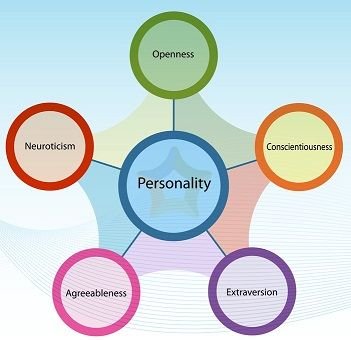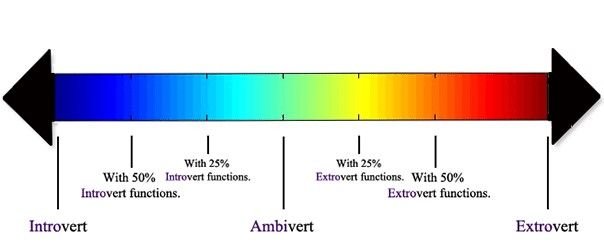
What is personality?
The term ‘personality’ was defined and popularised by Gordon Alport, an early authority on the subject. But, for the sake of keeping things simple his dense definition is going to be avoided within the post; and instead, personality will be described as the set of qualities and characteristics typical of an individual. Basically, those traits that are stable and enduring throughout a person’s life, for example: being outgoing, a worrier, methodical and so forth.
What are the reasons for studying personality?

Personality theorists seek out to understand what drives human nature; which inevitably touches on the issues of the basic nature of human beings. Are we a malevolent or benign species?
One prominent personality theorist who believed humans as a species are innately aggressive and self-destructive was Sigmund Freud (you might have heard of him). Fortunately, not everyone shared this rather bleak view about the fundamental basis of human nature. Carl Rogers - one of the founders of counselling psychology - perceived humans as a benign species driven by positive motives towards acceptance and growth.
The study of personality, however, does not only address questions about human nature. Psychologists in this field also explore what motivates behaviour; for example: Why do people do the things they do? Why do different people react differently in similar situations? The latter question is often brought up in the categorization of personality; an area of psychology that not only describes personality, but also measures it. Here, the central idea is that patterns of behaviour are both limited and present in individuals who share similar traits.
In other words, there is only a restrict number of ways people will react to and interact with the environment and others. Those under the same classification will, therefore, carry out similar patterns of behaviour.
Classifying & Measuring Personality

The classification and measurement of personality contributes to the understanding of abnormal behaviour, mental illnesses, and also; on a less gloomy note, it works as a good indicator of how financially secure someone is likely to be, how promiscuous, generally unhappy or satisfied in life. Psychologists argue that these are outcomes much more accurately predicted through the classification and measurement of personality traits than through age and social class.
So, how to go about doing this?
There isn’t a fix set of personality dimensions generally agreed upon among all psychologists and psychiatrists. Nevertheless, there are some which are widely recognised: agreeableness,openness,conscientiousness; with neuroticism(N) and extraversion(E) definitely being the most widely accepted ones.
| Classification | High on the scale | Low on the scale |
|---|---|---|
| Agreeableness | cooperative | hostile |
| Openness | into abstraction | practical |
| Conscientiousness | methodical | inattentive |
| Neuroticism | anxious | stable |
| Extraversion | outgoing | self-contained |
Together these personality dimensions are known as the Big Five.
According to some psychologists these dimensions fit the limited set of human behaviour, interactions and reactions.
Why dimensions?

The way the classification works is not a “in” or “out” of the box system. Rather, when thinking of any of the big five classifications one has to imagine a scale, let’s say from 0 to 10. Two individuals might both fall under the neuroticism dimension; although, it doesn’t necessarily mean they are equally neurotic.
There is no one personality better than the other. For example, individuals who score high on the neuroticism scale can become highly successful as they are very likely to strive hard in order to avoid failure. At the same time, people with low score in the extrovert dimension are happy with delayed gratification. However, it is important to always strive for balance.
More and more psychologists agree that these traits are a manifestation of inherited features and learning outcomes. This means personality is not seen as fixed and it can certainly be improved in most cases.
If you feel like it, leave a comment!
[Original content by Abigail Dantes 2017]

Reference
Day, L.,Macaskill, A.,Maltby, J.,(2010), Personality, Individual Differences and Intelligence, London, Pearson.

